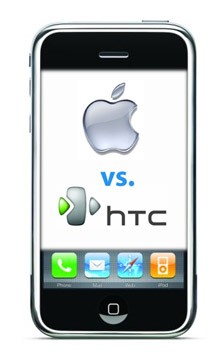Global struggle over software patents


That's not true. Software patents, or patents on what is expressed in software, are a global problem.
(Picture from our Apple Core blog, co-starring Jason O'Grady and David Morganstern. Always filled with Apple-flavored bloggy goodness.)
This is especially true in the case of Apple, which has sued HTC (and by extension Google) for violating its claimed rights to multitouch technology.
As Florian Mueller explained recently, Apple filed international patent applications for how it operates its touchscreen display in early 2007, and how you unlock the device with gestures on the locked image, in late 2006. It applied for patents on its touch screen interface late last year.
From this it's clear Apple thinks it has a worldwide monopoly on how the iPhone works, one that could last until late in the next decade. The questions courts must ask are:
- Does this cover any portable touch screen system, as Apple contends, or just this particular system?
- Should the patents be considered valid, since Google asserts it was working on its own Android system before the iPhone patents were filed.
There is another important question. Does it respect and reward innovation to give Apple control of all portable touch screen devices, for as long as touch screens may be an interface of choice? Would society have benefited if Microsoft had to wait until the 21st century to deliver Windows, or something like it?
Patent suits are most commonly filed in the U.S., Mueller writes, because this is still the largest technology market, because lawyers are comfortable with the legal system here and because victory usually leads to quick negotiations on global rights.
This leads me to two further questions:
- If China creates a reasonable patent law framework, will its market eventually draw patent litigation there?
- If U.S. legislators do return to patent reform, how will that impact technology markets worldwide?
Discuss.